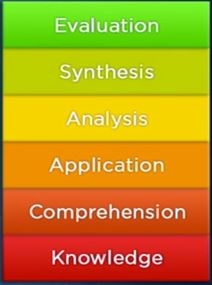Knowing how the world learns is a stepping-stone to understanding how students acquire skills and knowledge, teachers teach, and education systems function in the best (and worst) ways
-Alexander W. Wiseman
How the World Learns: Comparative Educational Systems, 24 Lectures
DVD 370.9 HOW, with CC, I saw in Kanopy with CC available, 2015
Alexander W. Wiseman, Ph.D. Associate Professor of Comparative and International Education
alexander.wiseman@ttu.edu
https://fire-ojs-ttu.tdl.org/fire/index.php/FIRE/about/contact
knowledge vs. skill ( tests only test skill not knowledge) and equality vs. equity
equality: equal access to the resource, etc,
sin of mission vs. sin of commission. Sins of omission are those in which we knew we should have done something good, but refused. A sin of commission is a sin we take action to commit, whether in thought, word, or deed. A sin of commission can be intentional or unintentional
- Sing with Beetles song, Hello, Goodbye
- Crosby, Stills, Nash & Young - Teach Your Children
And you, of tender years
You can't know the fears that your elders grew by
As a mile wide and an inch deep - spoken by William Schmidt bschmidt@msu.edu
Department of Counseling, Educational Psychology and Special Education
The Way We Were? The Myths and Realities of America's Student Achievement (Century Foundation/Twentieth Century Fund Report)
by Richard Rothstein riroth@epi.org
michelle.stack@ubc.ca, University of British Columbia,
martensk@uni-bremen.de, University of Bremen (lecture 8)
Sotiria.Grek@ed.ac.uk, University of Edinburgh
pasi.sahlberg@helsinki.fi
Burhanuddin Tola btola@centrin.net.id; pisa@centrin.net.id
1 The Global Challenge to Educate
- Context matters: context is key to make a useful comparison.
- School factors and no-school factors
- The key to international comparisons is understanding which school and non-school factors align to make good things happen.
2 Sputnik Launches the Science-Math Race
3 Education Is Life
4 Evidence-Based Policy Making in Education
5 What Should We Compare about Education?
6 The World Learns from Horace Mann
You can describe something as nonsectarian if it's not connected or affiliated with any particular religious or political belief. A college is nonsectarian if it isn't associated with a religion or church, and a Sunday school class that teaches all religions is also nonsectarian.
7 When Culture Invades the Classroom
knowledge achievement is knowledge creation. Chinese Confucius conformity kills creativity, this culture influence education from the inside out, South Africa AID/HIV, poverty influence education from outside in.
8 Germany and Japan's Shattered Expectations
9 Borrowing Foreign School Cultures
10 The Value in Linking School to Jobs
11 Why Blame the Teacher?
12 Gender Pipeline Lifts Equality Dream
13 Gulf Schools: The Non-National Advantage
14 Who Is Accountable for Education?
15 How Parents Shape Student Outcomes
16 Reading, Writing, and Religion
A hidden curriculum is a set of lessons "which are learned but not openly intended" to be taught in school such as the norms, values, and beliefs conveyed in both the classroom and social environment.
17 International Test Scores: All and Nothing
18 Turning a Good Teacher into a Great One
19 The Foundations of Civil Society
20 From National Student to Global Citizen
21 The Problem with Teaching's Best Practices
22 A School inside Your Phone?
non-linear, need-based, network for computer study
23 The Rich-and-Poor Learning Cycle
24 How to Fix Education: Heart, Head, Hands





































































































No comments:
Post a Comment